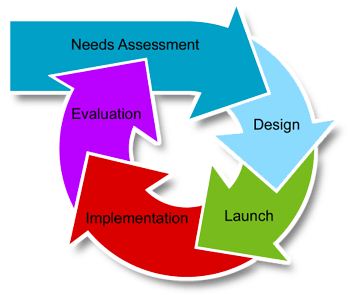Child Welfare Practice
Tribal Child Welfare Practice was one of the five overarching themes or topic areas identified through the NRC4Tribes Needs Assessment Findings - Executive Summary and complete NRC4Tribes Needs Assessment Findings. Tribal Child Welfare Practice addresses programs’ approaches to practice, the inclusion of culture-based services, challenges to working with tribal families and communities, issues related to the infrastructure needed to support programs, and workforce issues that include the areas of staffing, capacity, training, and development. The NRC4Tribes Needs Assessment includes a series of specific findings and recommendations concerning Tribal Child Welfare Practice. Many tribal representatives who were interviewed felt that they needed to grow their child welfare programs in order to meet the increasing service needs of American Indian/Alaska Native families in their communities. Participants identified numerous infrastructure elements that are necessary for effective tribal child welfare programs and critical need areas for T/TA. Many tribal child welfare program stakeholders who were interviewed recognized a need for a more formal and documented practice model, and 77% of survey respondents supported this by identifying the development of a practice model as a critical or moderate need area. The need for improved MIS in order to track child welfare cases emerged as one of the most critical needs for training and technical assistance, with more than half of survey respondents indicating a critical need for automated case management and data systems, improved service monitoring, tracking ICWA efforts, and outcomes tracking for families.
Documents on this page may need Adobe Reader 
|
|
Documented Practice Model Resources |
 |
NRC4Tribes Technical Assistance Needs Assessment: Tribal Child Welfare Practice |
|
|
Culturally Based Practice Resources |
|
Frequently Asked Questions (FAQs) concerning Tribal Child Welfare Practice |
|
|
Child Protection, Assessment Protocols and Case Management Resources |
|
Fostering Connections website resources concerning Tribal Child Welfare Practice |
|
|
Electronic Management Information Systems (MIS) Resources |
|
Bureau of Indian Affairs resources concerning Tribal Child Welfare Practice |
|
|
Workforce Issues/Resources |
|
Child Well-Being, Including Psychotropic Medication Oversight for Children in Foster Care Recent statutory mandates through the Fostering Connections and Increasing Adoptions Act of 2008 require States, Territories and Tribes that administer title IV-B, subpart 1 programs to address issues related to psychotropic medication prescription oversight and monitoring for children in Foster care. |
|
|
Family Engagement, Family Preservation and Support |
|
Tribal Courts in the Tribal Child Welfare System |
National Resource Centers focusing on Child Welfare Practice
The following National Resource Centers (NRCs) focus upon specific areas of Child Welfare Practice. The purpose of these NRCs – members of the Children's Bureau T/TA Network - is to build the capacity of State, local, Tribal, and other publicly administered or publicly supported child welfare agencies and family and juvenile courts through the provision of training, technical assistance, research, and consultation on the full array of Federal requirements administered by the Children's Bureau [CB link]. The NRCs have developed a Statement on how the Children's Bureau National Resource Centers (NRCs) work with American Indian/Alaska Native Nations
 |
National Resource Center for Child Protective Services Focuses on building State, local, and Tribal capacity through T/TA in CPS, including meeting Federal requirements, strengthening programs, eligibility for the CAPTA grant, support to State Liaison Officers, and collaboration with other NRCs. |
 |
National Resource Center for Youth Development
Provides States with CFSR assistance, including promoting stakeholder involvement, T/TA, and information services. Also offers States, Tribes, and other youth-serving organizations assistance in effectively implementing the Chafee Foster Care Independence and Education and Training Voucher programs, and supporting youth engagement in child welfare policy, planning, and program development. |
 |
National Resource Center for In-Home Services
Serves as a national center of expertise in child welfare practice for ensuring the safety of children and youth in their homes and making reasonable efforts to preserve families in which maltreatment has occurred. |
 |
National Child Welfare Resource Center for Organizational Improvement |
 |
National Resource Center for Child Welfare Data and Technology
Addresses a broad range of program and technical issues (including Tribal and court child welfare issues) in assisting with the CFSR process, including training on data use and management, AFCARS assistance, coordinating peer consultation, and preparation and use of State Data Profiles. |
